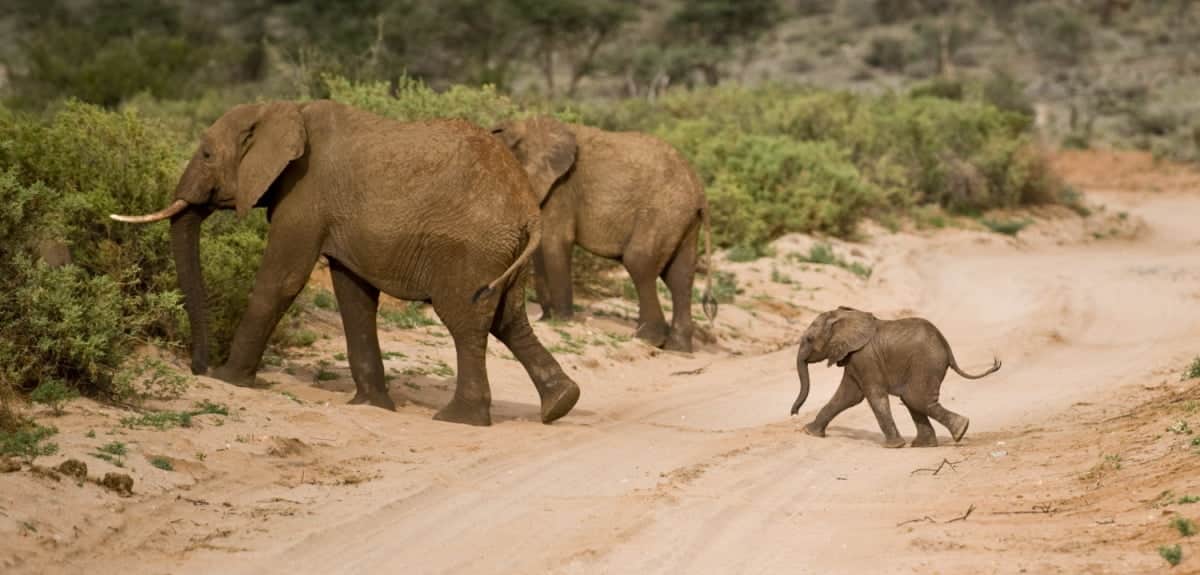No rest for new elephant mothers
Wednesday 20th Apr 2022, 12.01pm

GPS data shows new mothers and calves can keep up with the herd right after birth.
Research published today in Animal Behaviour tracking the progress of elephant herds has shown that the group doesn’t need to reduce its pace for new mothers and their calves.
International researchers led by the University of Oxford in collaboration with Save the Elephants found that there was no significant change in the average daily speed of the new mother except for the expected dip in speed on the day of the birth.
Researchers believe this ability to maintain the pace as the group moves in search of food and water is down to the amount of time the calf is in the womb. The calf arrives with an advanced level of development after a lengthy 22-month pregnancy.
Lead author Dr Lucy Taylor, Department of Biology, University of Oxford said:‘We speculate that this ability ‘to keep up’ may underpin why elephants have the longest gestation period of any mammal in order to facilitate an advanced state of fetal physical development and may have evolved to help elephant herds stay together.’
‘Aunts’ in the matriarchal herds help to raise and protect calves, sharing the caring responsibilities to protect new mothers and those expecting amongst the group from expending too much energy or falling foul of predators.
The researchers monitored the movements of African savannah elephants in northern Kenya using specially adapted GPS collars that record data. The data was collated and compared, along with an estimate of the age of baby elephants based on size and appearance using established ageing techniques, to determine the average speed of the mother, before and after giving birth.
‘I find it remarkable that female elephants are pregnant for 22 months, give birth and then are capable of carrying on almost straight away. Even the oldest female in a family herd, the matriarch, can still give birth and lead the group, which I consider to be another demonstration of the strength and resilience of female elephants,’ said Dr Taylor.
Dr Iain Douglas-Hamilton, founder of Save the Elephants said: ‘Sociability and shared experience are likely major factors that allow African savannah elephants to thrive in such a wide range of habitats. Keeping up with the herd from the moment of birth also allows the babies to benefit from protection against predators at a vulnerable stage.’
The full paper, ‘Movement behaviour after birth demonstrates precocial abilities of African savannah elephant (Loxodonta africana) calves’ is available to read in Animal Behaviour.

